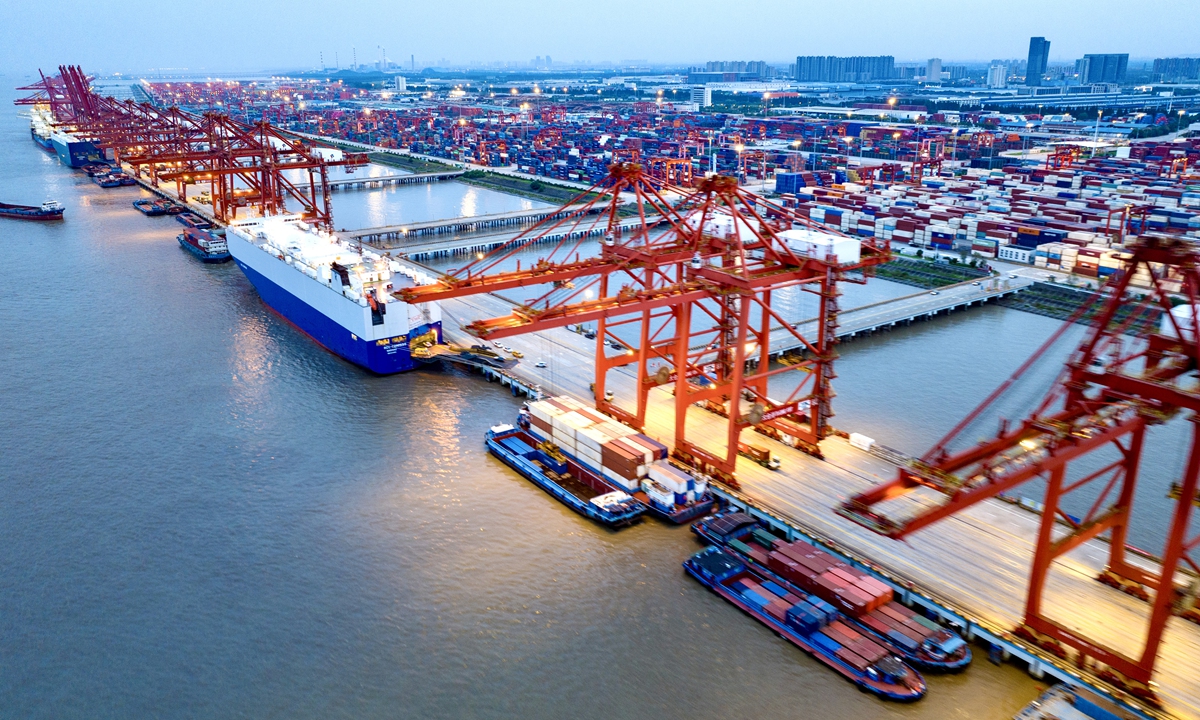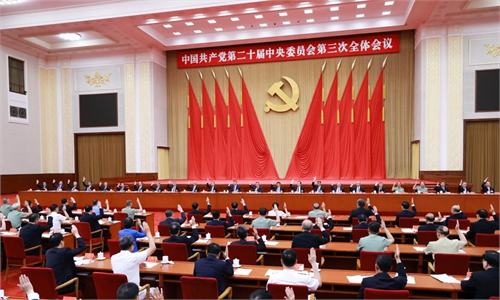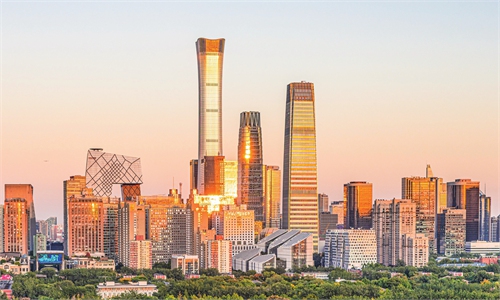Chinese government agencies take decisive actions to achieve annual development goals following CPC leadership meeting
Experts express confidence that China can achieve approximately 5% GDP growth in 2024

Ships park at a container terminal at the fourth phase project of the Taicang Port in East China's Jiangsu Province, on July 9, 2024. Photo: VCG
Chinese government agencies are moving swiftly to arrange economic work for the second half of the year following a key tone-setting meeting on Tuesday, as the Communist Party of China (CPC) is determined to accomplish the goals for economic and social development in 2024 with steadfast efforts.
Dismissing certain Western media outlets' bad-mouthing of the economy, analysts expressed confidence that China can achieve GDP growth of about 5 percent this year, saying that positive factors have started to accumulate despite persistent pressure - for example, consumers' comparatively high willingness to travel and enterprises' growing willingness to replenish inventories.
China will intensify the implementation of its fiscal policy to support the economic recovery, Lin Zechang, an official of the Ministry of Finance, said at a press conference in Beijing on Wednesday.
The country will issue ultra-long special treasury bonds in a timely manner and make good use of the proceeds, Lin said, noting that the country will also speed up the issuance of local government special-purpose bonds and expedite the use of the proceeds.
The issuance of local government bonds had reached 1.9 trillion yuan ($266.31 billion) as of Friday, while 418 billion yuan of ultra-long special treasury bonds had been issued.
Separately, the National Development and Reform Commission held a conference on Tuesday to arrange work for the second half. It called for efforts to strengthen analysis of the economic situation and policies, while stressing that it would implement a variety of reform tasks, accelerate the building of a unified national market and develop the private economy with greater efforts.
The government agencies' moves came after a CPC leadership meeting held in Beijing on Tuesday to analyze the current economic situation and set out priorities for the second half of this year.
The meeting called for efforts to raise the awareness of risks, be prepared to deal with worst-case scenarios, and maintain strategic resolve and confidence in the country's development.
Compared with previous Political Bureau meetings, the new tone-setting conference put far more focus on boosting consumption, especially pointing out that economic policies should center on improving people's livelihoods. Having pinpointed problems with the economy, policymakers are expected to take multiple measures to increase personal incomes to enhance consumers' spending capacity, said Chen Fengying, an economist and former director of the Institute of World Economic Studies at the China Institutes of Contemporary International Relations.
Thanks to stepped-up government policy support, a continuous improvement in overseas demand and a pick-up in home consumption, China's GDP expanded 5 percent to 61.68 trillion yuan ($8.49 trillion) in the first half of 2024, laying a solid foundation for the achievement of the annual GDP growth goal of around 5 percent.
According to data released by the National Bureau of Statistics on Wednesday, the production index of manufacturing PMI was above the threshold at 50.1 in July, which indicates that factories' production expanded.
However, some Western media outlets hyped a pessimistic picture of the world's second-largest economy. For example, Bloomberg reported on Wednesday that the meeting on Tuesday didn't show a significant change in the Chinese central government's policy stance in the second half, and thus it claimed that China's growth outlook largely depends on exports, citing an analyst.
"There are policies in place to support a sustained economic recovery. The third plenum also put forward more than 300 important reform plans. That's why the Political Bureau meeting did not announce new stimulus measures," Chen said.
She said that Chinese authorities attach importance to systemic arrangements, which means implementing policies in an orderly fashion in a bid to produce the best effects.
Wen Bin, chief economist at China Minsheng Bank, said that some good signs for an economic rebound have emerged, for example, consumers' comparatively high willingness to travel and spend as well as enterprises' growing willingness to replenish inventories.
"As macro-policies continue to produce effects, China is expected to reach the GDP growth target of about 5 percent," he said.
In the second half of the year, there is still room for the central bank to step up expansionary monetary policy -- for example, interest rate cuts -- to spark the vitality of enterprises, Wan Zhe, an economist and professor at the Belt and Road School of Beijing Normal University, told the Global Times on Wednesday.
A new round of reform and opening-up will build a sound institutional environment for all businesses and boost their confidence to expand investment and seek greater development, Wan said, noting that reforms by the world's second-largest economy will inject stability into the world amid a sluggish economic recovery.



